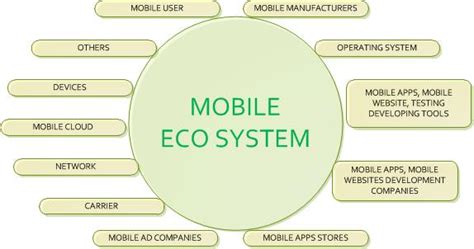The ever-evolving landscape of mobile technology has recently experienced a significant disruption with the introduction of Mobifree, a pioneering initiative committed to establishing an open-source mobile ecosystem. While the vision of Mobifree is laudable, it has sparked varied reactions ranging from enthusiastic support to pointed criticism. The core mission is to offer more choice and accessibility, especially to European users, through decentralized app distribution via platforms like F-Droid. However, many wonder whether the emphasis on the European market could create limitations rather than opportunities.
One significant factor in the creation of Mobifree is the recent regulations passed by European governments, compelling tech giants to open their platforms to third-party app stores. According to afavour, this regulatory landscape has played a pivotal role in shaping the direction of Mobifree, even though it has received substantial funding from the European Union. The regulations, encapsulated in the Digital Markets Act, are designed to mitigate monopoly powers of Big Tech companies like Google and Apple. The legislation acts as a double-edged sword; while it opens up avenues for projects like Mobifree, it also imposes stringent compliance requirements, making it a complex venture.
Notably, there’s been a discourse about the geographical restrictions, or lack thereof, of F-Droid, the app store playing a central role in this initiative. _heimdall aptly notes that F-Droid isn’t geographically restricted but emphasizes Europe due to funding priorities. This is interesting considering that other commenters, including wyldfire, argue that the benefits of Mobifree could extend globally. jqpabc123 articulated this well, emphasizing that the project aims to provide more choice universally, even though its current rhetoric is focused on European residents.
Criticism of Mobifree has also surfaced, particularly around its seeming over-reliance on Android and its open-source counterpart, AOSP. Critics like criddell express concerns over the irony of an Europe-centric open-source solution being built on an American OS. This apprehension is accentuated by the complex dependencies and constraints imposed by Android’s infrastructure, which is still under Google’s control to a significant extent. Commenters like wicket observe that an ecosystem touted as an alternative to Big Tech still deeply hinges on technologies sourced from these very corporations.
Another layer of complexity arises from the intricacies of EU funding, which some like nradov and nextos argue could be a curse rather than a blessing. As pointed out by nextos, EU-funded consortia often grapple with bureaucratic red tape, resulting in more paperwork than actual development. This sentiment is shared by fabrice_d, who recounts firsthand experiences of how these projects, often politically motivated, tend to focus more on securing continuous funding than on delivering tangible outcomes.
Yet, despite the criticisms, there is an undeniable spirit of innovation and resistance against monopolistic practices that Mobifree embodies. Proponents like reify highlight the importance of awareness and adoption, stressing that the success of such initiatives relies not just on technical prowess but on changing user habits and perceptions. This ethical turn is captured well by those like Jraph, who express the profound inclination towards using and supporting open-source and privacy-centric technologies.
Ultimately, Mobifree’s journey symbolizes a broader struggle within the tech industry: the endeavor to decentralize and democratize technology against the long shadows cast by industry giants. Its reliance on Android, albeit paradoxical, also underscores the necessity to leverage existing platforms in the fight for more equitable tech ecosystems. With significant funding and regulatory support, Mobifree stands at the precipice of potentially revolutionizing how we perceive mobile ecosystems. Whether it will overcome the inherent challenges and deliver on its promises remains to be seen, but its mission alone signifies a noteworthy step towards a more open and just tech world.


Leave a Reply